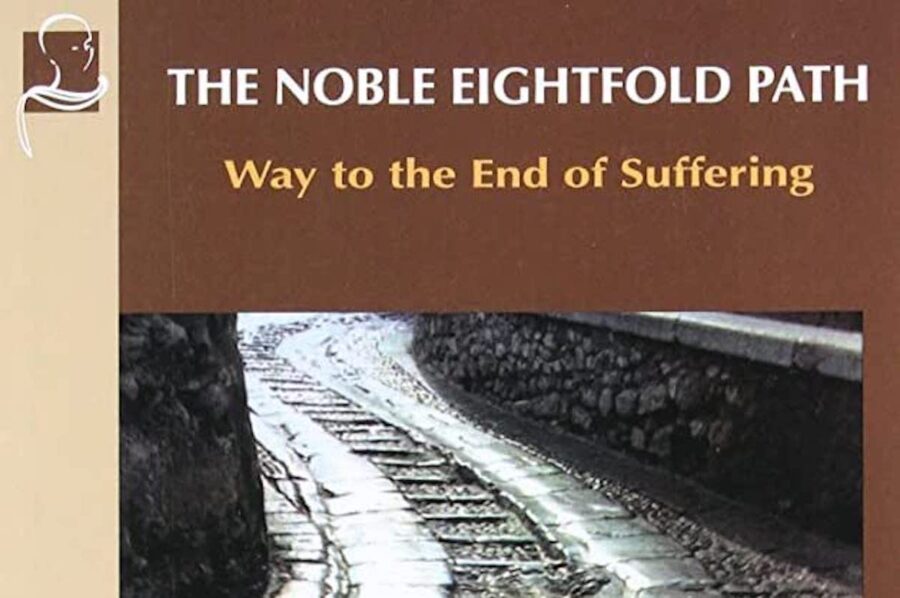
If you’re interested in mindfulness and want to learn more about Buddhism, then “The Noble Eightfold Path: Way to the End of Suffering” by Bhikkhu Bodhi is an excellent resource. This book provides a comprehensive overview of the Buddhist framework that supports the practice of mindfulness, and it’s a great way to deepen your understanding of this ancient tradition.
The book is organized into three parts. The first part explores the historical background and philosophical foundations of Buddhism. The second part focuses on the Noble Eightfold Path, which is the centerpiece of Buddhist practice. And the third part delves into the practical application of the Path in daily life.
One of the things I appreciate most about this book is how accessible it is. Even if you have no prior knowledge of Buddhism, the author’s clear and engaging writing style makes it easy to understand the concepts and terminology. At the same time, the book is rich in detail and depth, and it’s a great resource for both beginners and advanced practitioners.
In the first part of the book, Bhikkhu Bodhi provides a historical overview of Buddhism, from its origins in ancient India to its spread throughout Asia and beyond. He also discusses the key philosophical concepts that underpin Buddhist thought, such as the Four Noble Truths, the law of karma, and the Three Characteristics of Existence. Through his clear and insightful writing, Bodhi brings these ideas to life and shows how they are still relevant and useful today.
The second part of the book focuses on the Noble Eightfold Path, which is the heart of Buddhist practice. This Path consists of eight interconnected practices that are designed to help us cultivate wisdom, ethical conduct, and mental discipline. Bhikkhu Bodhi does an excellent job of breaking down each of these practices and explaining how they work together to support the overall goal of liberation from suffering. Whether you’re new to Buddhism or a seasoned practitioner, you’ll find valuable insights and practical advice in this section of the book.
In the third part of the book, Bhikkhu Bodhi explores the practical application of the Path in daily life. He discusses how we can integrate mindfulness and other Buddhist practices into our work, relationships, and daily routines. He also addresses common challenges and obstacles that arise in the practice and offers guidance on how to navigate them. This section of the book is particularly helpful for those who are looking to deepen their practice and integrate it more fully into their lives.
Overall, I highly recommend “The Noble Eightfold Path: Way to the End of Suffering” to anyone who is interested in mindfulness, Buddhism, or personal growth. The author’s clear and engaging writing style, combined with his deep knowledge and understanding of the Buddhist tradition, make this book an excellent resource for anyone looking to deepen their understanding of these topics. Whether you’re a beginner or an advanced practitioner, you’ll find valuable insights and practical guidance in this book that will help you on your journey toward greater peace, wisdom, and compassion.
Get The Book



Comments are closed.